The Khyber Pakhtunkhwa (KP) medical and dental colleges entrance test, i.e., MDCAT, is being conducted again on November 26 in different cities of the province. However, candidates are still in doubt due to their last experience.
Karak’s student Javeria says that though she was satisfied with her result, she was disappointed to hear that some candidates scored by a considerable margin and used Bluetooth devices, but she was very happy with the reorganisation by the government.
“We did not cheat before as well. Whether the Educational Testing and Evaluation Agency (ETEA) takes the test or Khyber Medical University, our hard work will pay off. However, there is still a fear that something will happen like before, which will waste more time.”
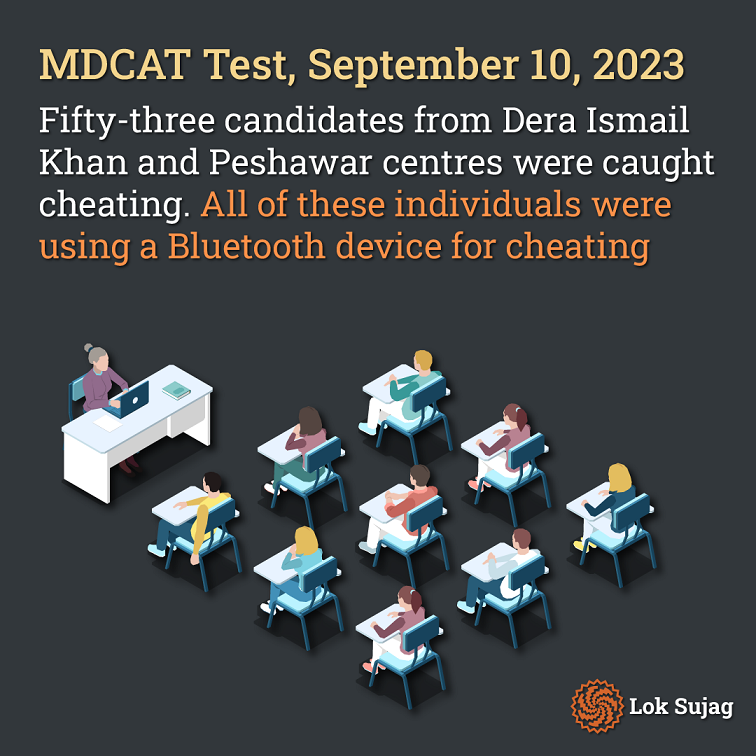
MDCAT was held on September 10 this year under the auspices of ETEA in 44 examination centres across the province, in which approximately 46,000 male and female students participated.
Fifty-three candidates (10 in Dera Ismail Khan, 33 male, and ten female students in Peshawar) were caught cheating during the test. These individuals were using the same method for cheating, i.e., a Bluetooth device.
All these people were issued VIP passes for the test and were charged huge sums of money.
It was the first scandal to involve extensive and systematic cheating tactics. When the test results came in, more than a thousand students had scored high marks, although the number is usually only a few hundred.
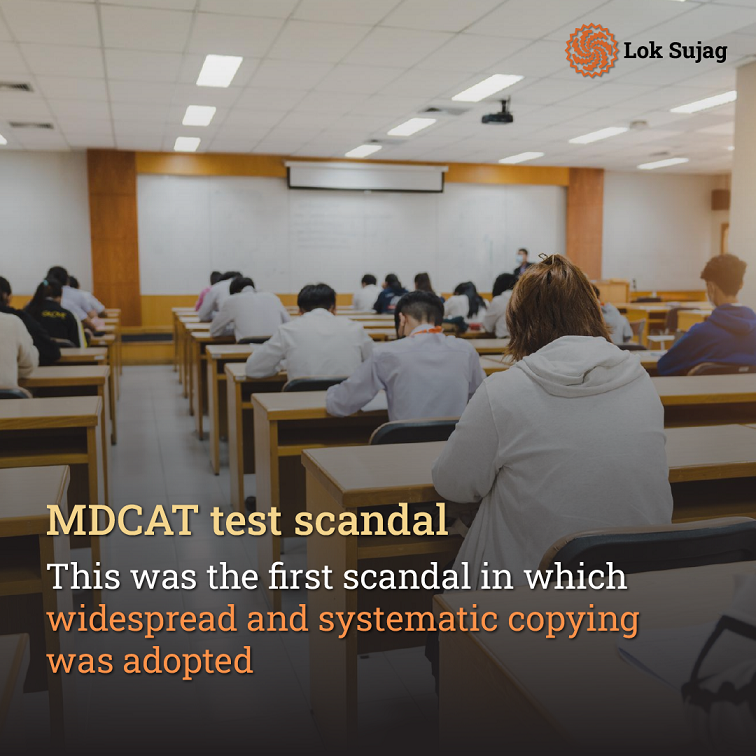
An investigation by law enforcement agencies led to the identification and arrest of 335 students from various districts who had used the device.
It was shown that more than 1,500 students had used this method, so it was decided to present all the students who scored more than 170 marks on the test before the committee.
On September 16, at the request of the students in the Human Rights Cell of the Peshawar High Court, the test results were released until further order from the court, while the government formed a joint investigation team to investigate the matter.
On September 23, the police authorities arrested the main person behind this scandal, Zafar Mehmood Khattak, his brother, and several associates.
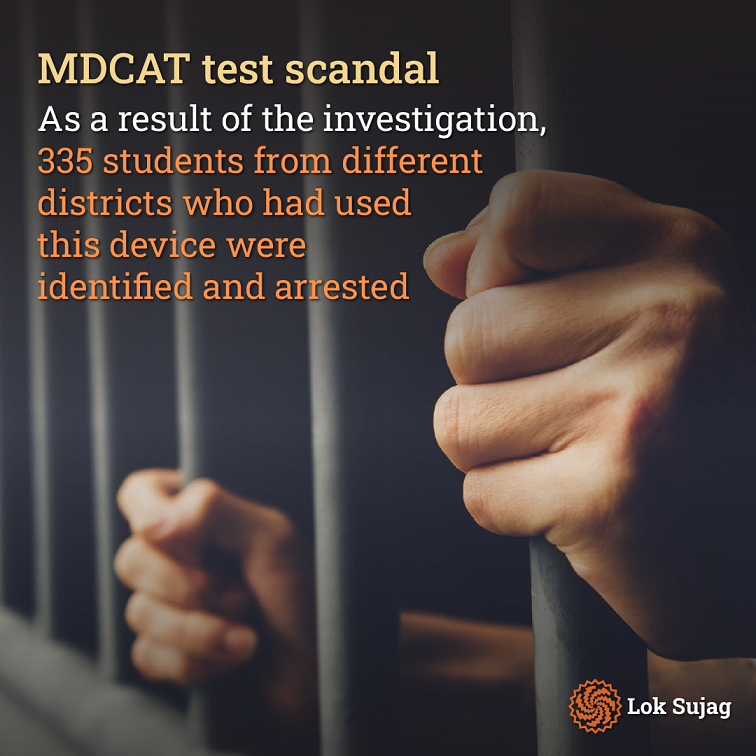
According to the initial report, the group charged Rs2.5 lakh to Rs3.5 lakh to students appearing for the exam for cheating through Bluetooth devices. Police recovered 44 electronic devices, four microphones, three mobile phones, a smartwatch, and a bank check worth lakhs of rupees from the arrested persons during the operation conducted in other districts of Khyber Pakhtunkhwa, including Peshawar.
Zafar Mehmood Khattak, the main accused in the MDCAT scandal, was caught red-handed in the 2016 Engineering University entrance test, where he was present in the test as an invigilator.
An FIR (First Information Report) was also registered against the accused at the police station on the university campus. A week later, on July 24, 2016, the accused participated in MDCAT as a fake candidate.
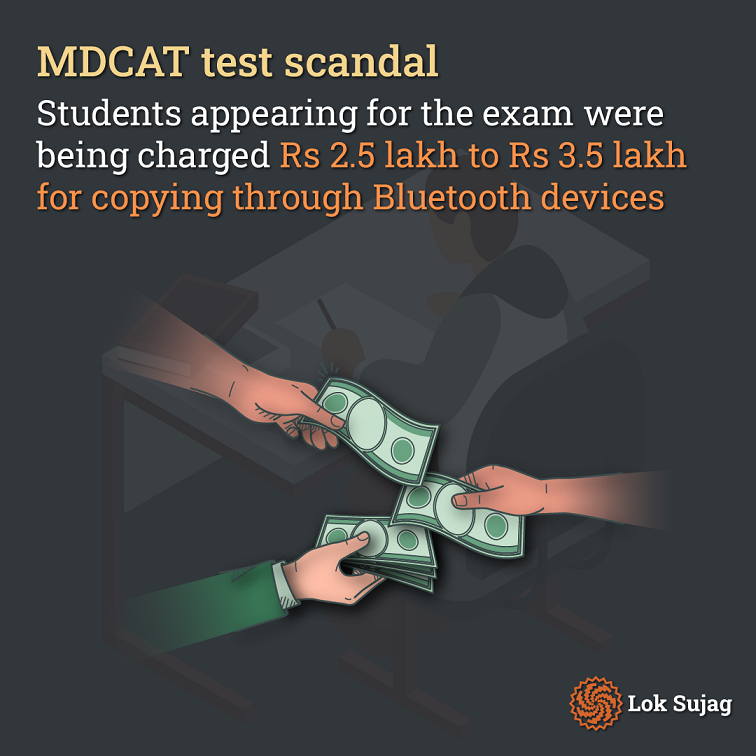
The accused is an assistant director in the Federal Public Service Commission, while his brother Noor Sardar is employed in the Rescue Department. Another alleged accomplice, Hamad, was an inspector in the law enforcement agency.
Along with these characters, people from universities and other institutions are also allegedly involved in this game.
After the Joint Investigation Team (JIT) report, the government cancelled the MDCAT test results on September 26 and decided to re-conduct the test under Khyber Medical University. The Peshawar High Court also upheld the government’s decision, after which a new date was announced for the test.
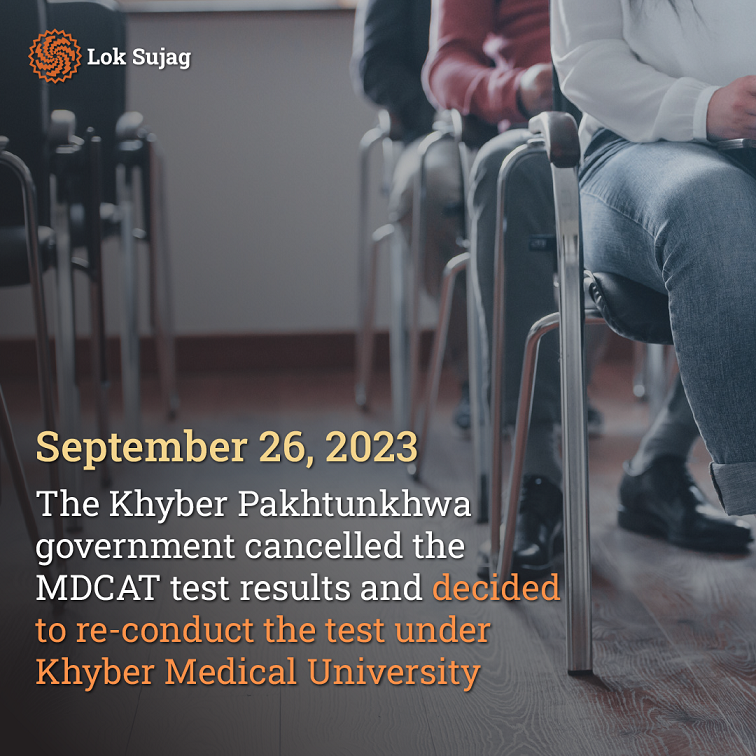
Ejaz* from Karak District narrates a personal experience about the gang’s behaviour. His female relative contacted him some time ago. She was desirous of being recruited as a lecturer by the Public Service Commission, for which she was asked to pay Rs 30 lakh, and she said that the money would be spent after the job was done.
Ejaz says the lady asked him to settle matters with them, so he contacted them on WhatsApp. After establishing trust, they contacted him on the phone.
“They promised to provide the same job wherever I wanted, which surprised me.
“Regarding the Public Service Commission post, they said that a device will have to be used in the test; otherwise, there is no difficulty.”
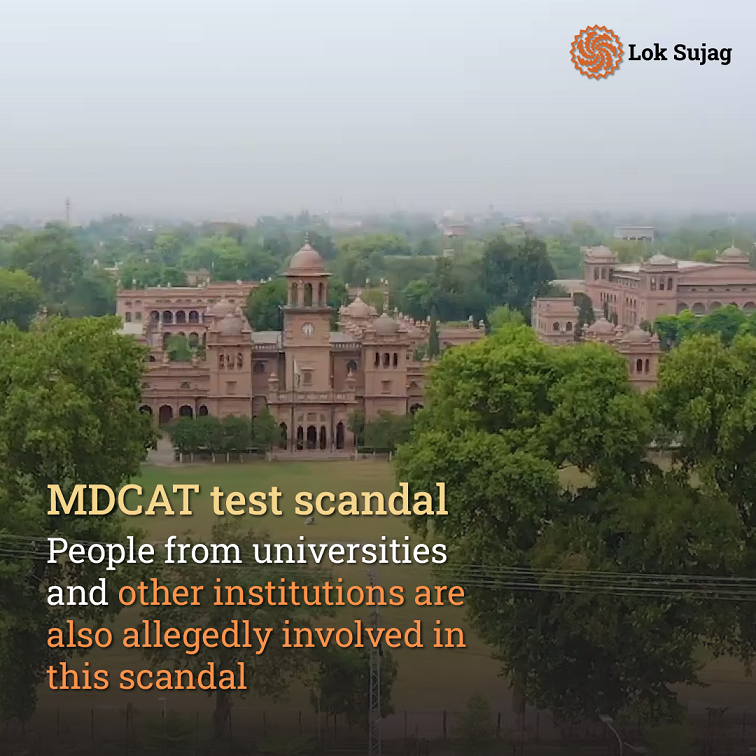
Ejaz also showed the alleged evidence, WhatsApp chats, and voice notes to Lok Sujag.
Ejaz says he also claimed that many students currently studying in medical colleges passed last year’s MDCAT test using the device.
They also said that they do the same work in every testing agency, even in the universities in Khyber Pakhtunkhwa, where tests have been passed through this device.
Moreover, people have been passed to the selection board, where recruitments have been made on 17 and 18 scales for 30 to 40 lakhs.
Also Read

A journal disorder: Money-minting operations of a fake publisher successfully elude HEC's oversight
“That woman’s family had prepared to sell the land to manage the money, but she was reluctant to sit for the exam and solve the test through the device. So it could not happen, and she prepared the test herself, which she passed but failed in the interview. The guy who contacted me was involved in the MDCAT test.”
Saim, a student from Swabi, says that although the arrest of these accused is welcome, the identification and arrest of dozens of people involved with them is still pending. Before conducting the test, all the relevant roles should have been identified so that the students’ confidence is restored that nothing like this will happen in the future.
This time, the test is conducted under Khyber Medical University (KMU) Peshawar. Various law enforcement agencies closely monitor all stages of test preparation and printing. Carrying equipment or electronic devices in the examination centres will be strictly prohibited. Section 144 has also been imposed in Peshawar for security. The caretaker provincial government has also decided that mobile phone services will be suspended around the examination centres during the test.
Published on 25 Nov 2023



















